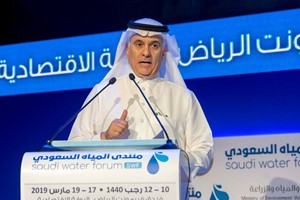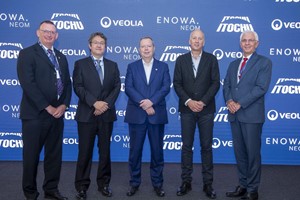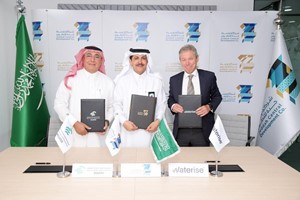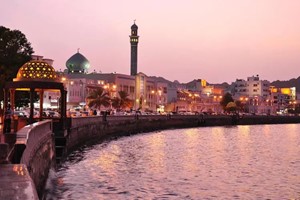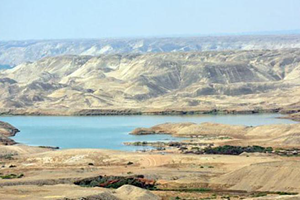His Highness Prince Salman bin Sultan bin Abdulaziz, the Governor of the Madinah Region, has inaugurated a series of critical environmental, water, and agricultural projects in Saudi Arabia, aimed at enhancing regional sustainability and infrastructure. The ceremony, which included the Minister of Environment, Water and Agriculture, marked a significant milestone in the region's development.
A key initiative is the Rayyis and Rabigh Independent Water Transmission Pipeline Project. With a transmission capacity of 500,000 cubic meters per day and an estimated cost of 2.4 billion riyals (approximately US$639.5 million), this project is designed to ensure a continuous and efficient drinking water supply across the Makkah and Madinah regions. The Saudi Water Partnership Company (SWPC) announced its financial closure in March 2024. Spanning 150 kilometers, the pipeline will connect water desalination sources in both cities and will operate under a Build, Own, Operate, and Transfer (BOOT) model for 35 years, with commercial operations expected to commence in the second quarter of 2026.
In conjunction with this project, the Yanbu Independent Water Production Project has also been launched. This initiative is set to provide 450,000 cubic meters of drinking water per day to the Makkah and Madinah regions, at a cost of approximately 3.3 billion riyals (US$880 million). Developed by a consortium led by ENGIE and involving Saudi firms Nesma and Mowah, the project utilizes advanced reverse osmosis technology powered by solar energy, marking a substantial move towards sustainable infrastructure.
Additionally, SWPC's CEO, Eng. Khaled Alqureshi, has been actively visiting various SWPC projects, including the Rabigh 4 Independent Water Production Project. This facility will feature a seawater reverse osmosis desalination plant capable of producing 600,000 cubic meters per day, a potable water storage capacity of 1,200,000 cubic meters, and a solar photovoltaic capacity of 6.804 MWp. Managed by a consortium comprising ACWA Power, Haji Ali Reza (HAACO), and Al Moayyed, the Rabigh 4 project is expected to be completed by March 31, 2026.
Together, these initiatives represent a significant investment in the future of water management and environmental sustainability in Saudi Arabia.








